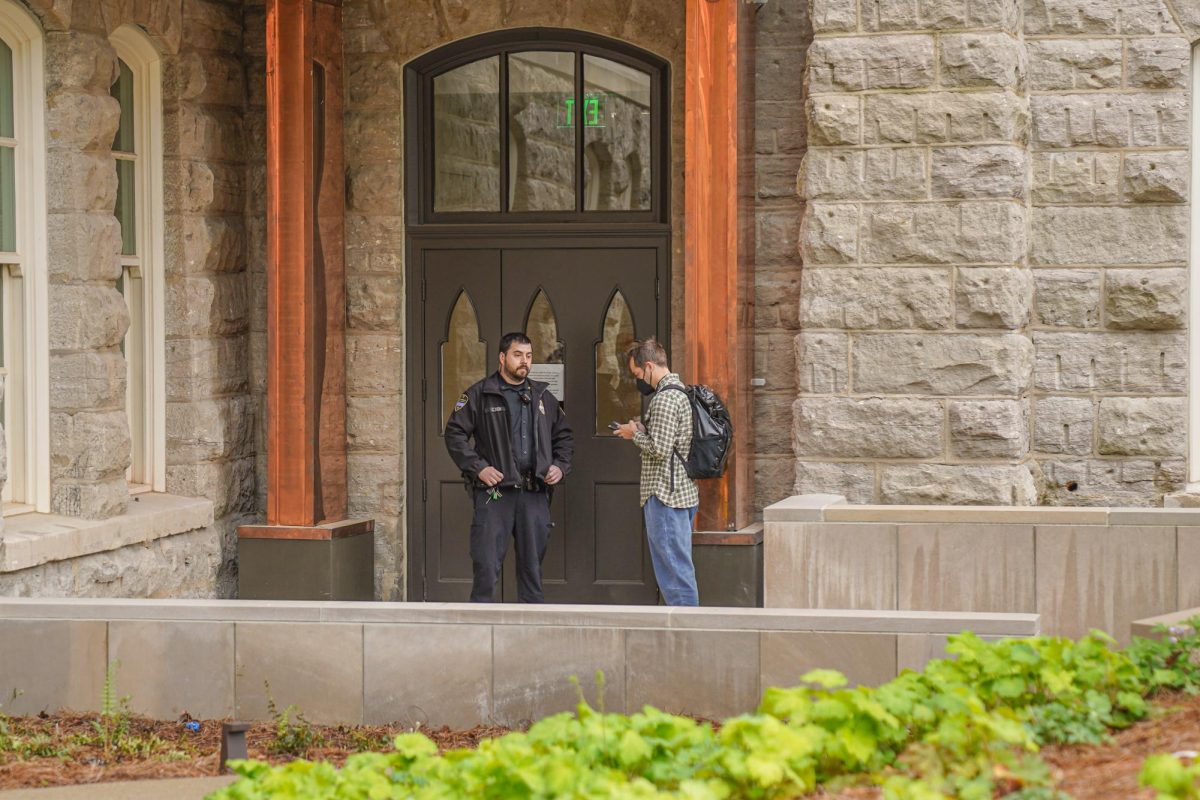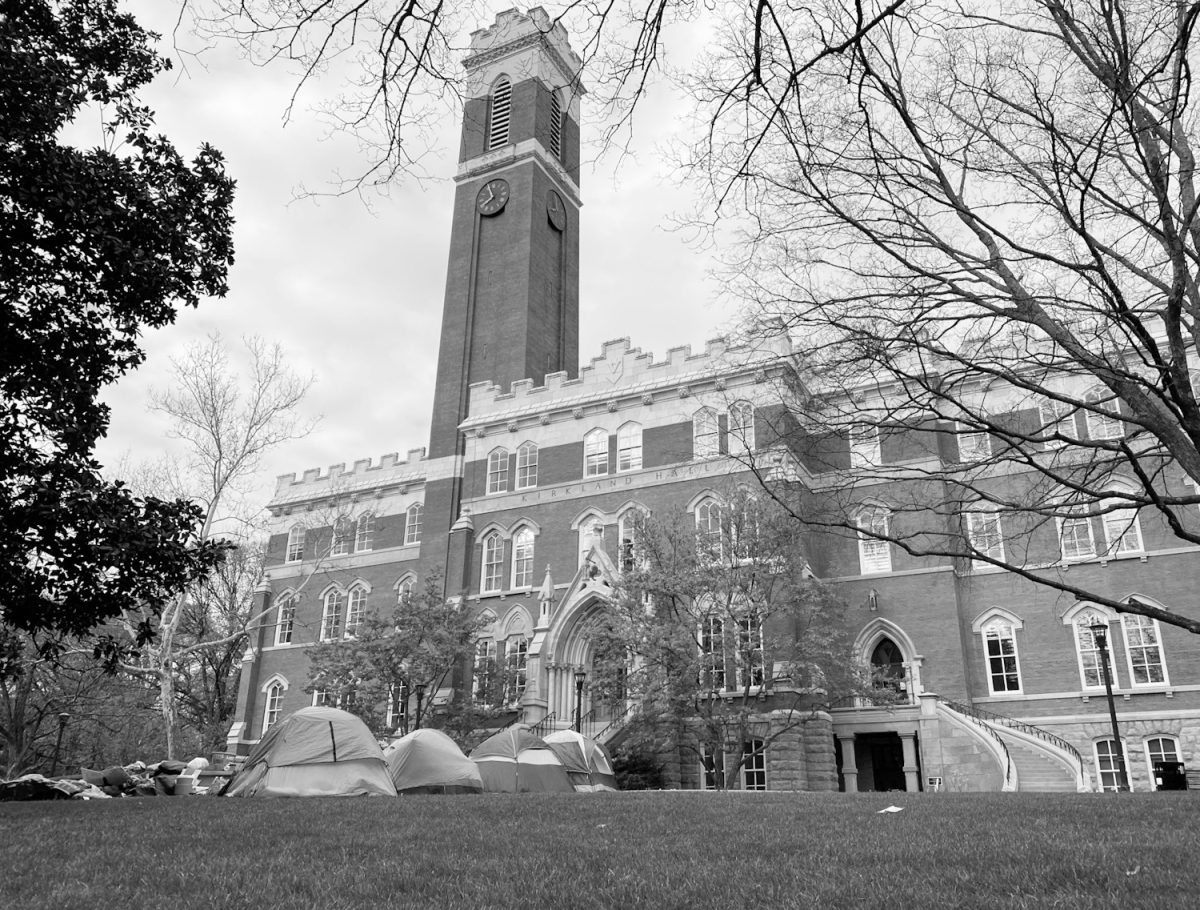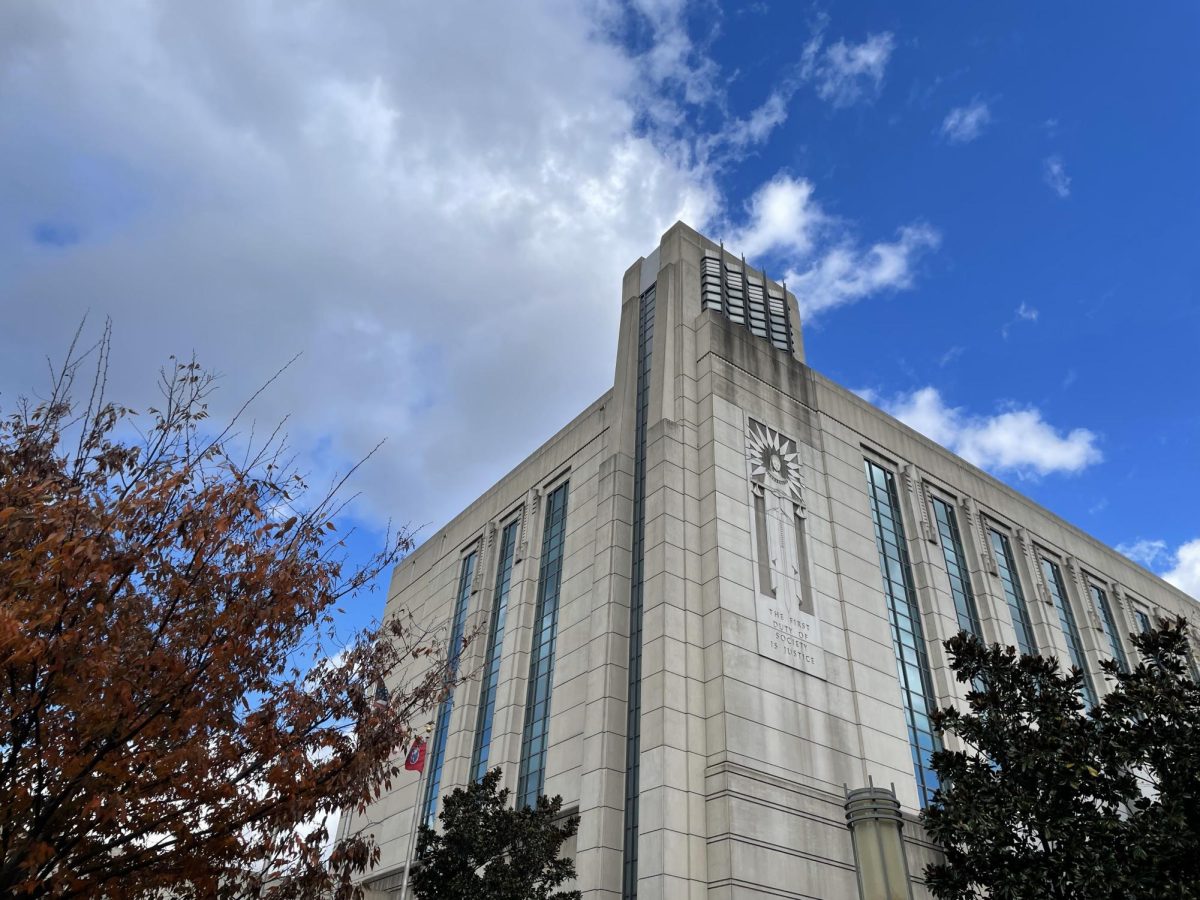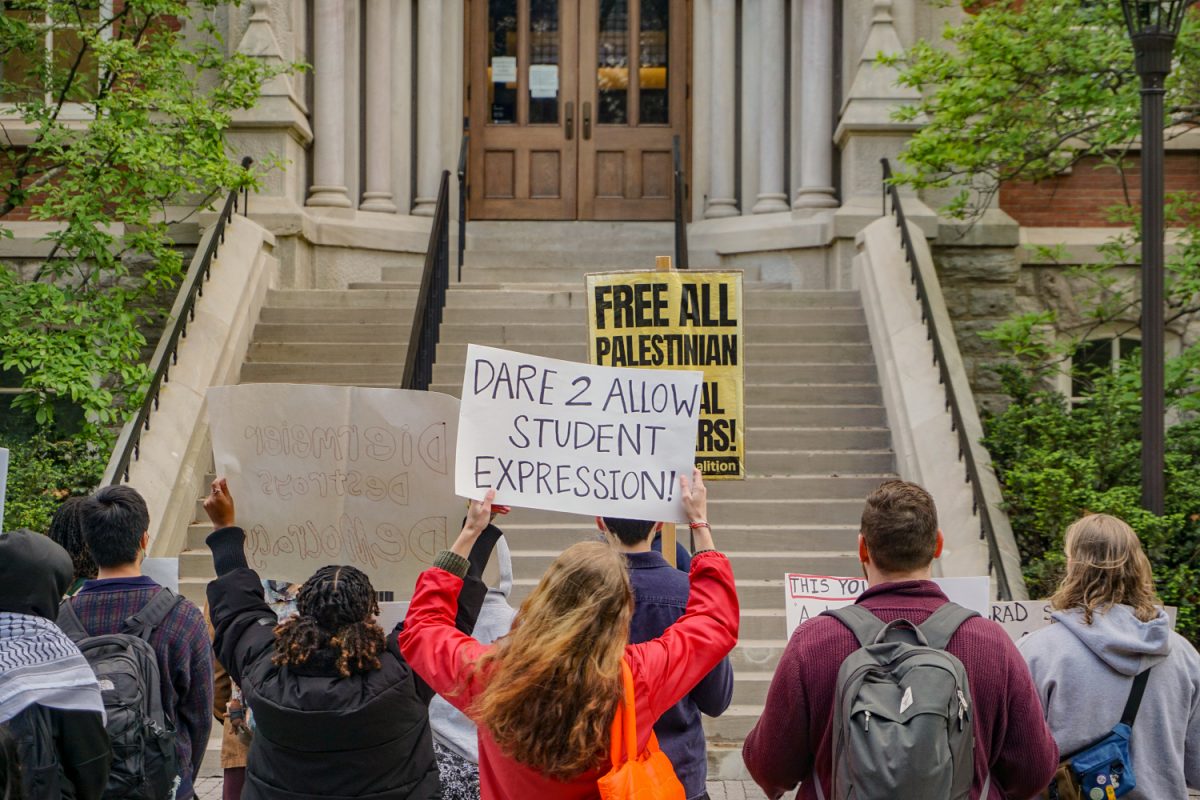According to a university representative, Vanderbilt’s communications office’s current guidance for the media — which is under review by the university — has been in place for at least five years, despite claims from other outlets that it was developed after the March 26 Kirkland Hall sit-in. The representative also shared that VUPD’s recent arrest of Nashville Scene reporter Eli Motycka for alleged attempted trespassing was “in no way related” to this guidance.
The representative explained that the university’s guidance for external media — which was shared with The Hustler — is not strictly a policy, despite the university referencing it such in a recent press release. VUPD declined to comment on whether Motycka’s arrest was related to any policies from other administrative divisions. In VUPD’s daily crime log, Motycka’s incident was listed as “trespass of real property.” Motycka was not charged, and Attorney General Glenn Funk told the Scene that he will not press charges against Motycka or any reporter “for peacefully doing his or her job.”
A March 27 article by the Nashville Scene stated that reporters from the Scene, the Nashville Banner, The Tennessean and WPLN “confirm[ed] that they [were] not familiar with the policy” as of March 27. D. Patrick Rodgers, the editor-in-chief of the Scene, reaffirmed to The Hustler that his staff was unaware of the university’s guidance for external media as of March 27.
However, a university representative told The Hustler that the university’s communications office reminded Rogers and the Nashville Scene of its guidance for external media via email on Aug. 16, 2022.
The representative said Vanderbilt typically “guide[s] media” through the process of reporting on campus “without any need of a formal reminder” of these soft expectations. While the guidance instructions are not posted publicly, the representative said it is periodically sent by the university’s communications office to broadcast media outlets. The Hustler also obtained documentation of an October 2023 email to broadcast outlets such as WKRN, WSMW and News Channel 5 which outlined the same guidance to external media. The Scene, WPLN, the Tennessean and the Nashville Banner were not on this email chain.
The guidance for external media informs outlets that if reporters are found to be on campus “unannounced,” VUPS may ask them to leave and relocate to public property. Alternatively, a Vanderbilt staff member may offer to escort the reporter around campus. The guidance also states that “administrative” buildings — including Kirkland Hall — and residential colleges, are private property that are “off-limits to media” at all times unless prior arrangements have been made.
“Whether a reporter arrives on campus announced or unannounced, Vanderbilt Communications regularly works with them to provide what they need,” the representative said.
Although the current guidance for external media is not new, the university released a public statement on March 28 stating it would “review and explore updates to our campus access and media policies.” The statement specifically said the university will review whether the administration’s response to Motycka’s attempts to enter Kirkland Hall, which led to his arrest, aligned with Vanderbilt’s “core values,” including a “commitment to freedom of the press.”
The university’s guidance for external media legally can exist due to Vanderbilt’s status as a private university and is meant to protect “the community’s safety and privacy,” per the university representative. It does not apply to current Vanderbilt community members and external media housed on campus, such as the Nashville bureau of the Associated Press located in the John Seigenthaler Center.
Several other private universities maintain more official but similar media policies requiring reporters to notify campus administration prior to coming to campus and limiting access to certain buildings, such as Harvard, Columbia, Notre Dame, Duke, Cornell and Baylor.
Mike Hiestand, senior legal counsel at the Student Press Law Center, emphasized that Vanderbilt’s status as a private university exempts it from the same First Amendment regulations that may restrict a public university from adopting similar soft expectations.
“Private schools generally have significantly more legal leeway when it comes to limiting access to their private property,” Hiestand said.
Heistand added that despite being legal, the university’s guidance for external media presents undue challenges to journalists who seek to report on a university’s campus.
“I made a few trips to Vanderbilt over the years to attend events at the Freedom Forum’s First Amendment Center, which [is] located on your campus. To go from there to what we’re seeing now is shocking and shameful,” Hiestand said. “I think John Seigenthaler would be stunned to hear what’s going on.”
Editor’s Note: Katherine Oung has written 3 freelance articles for The Scene.










